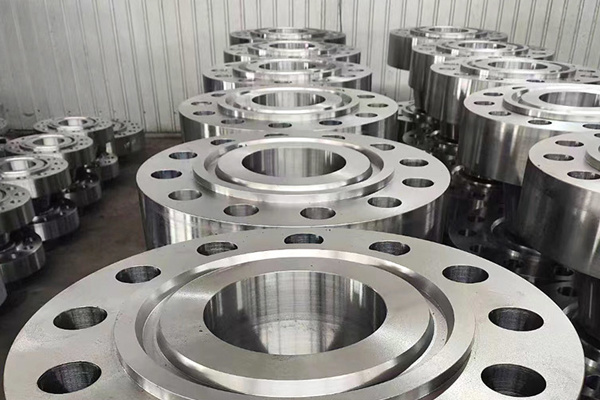The Unsung Hero of Industry: A Deep Dive into Flanges
2025-09-14
Flange
What is a Flange?
Alright folks, let's kick things off! A flange—that's right, the term you might often overlook—is actually a crucial component in piping systems. Think of it as a connector, a kind of mechanical joint that makes sure pipes, valves, and other equipment stay snugly fastened together. Without flanges, well, let's just say our plumbing and industrial systems would be in a bit of a pickle!
Types of Flanges: A Quick Rundown
Now, before you start yawning, hold on! There's a whole world of flanges out there. Here's a brief overview of some common types:
- Slip-On Flanges: These guys slide right over the pipe. Simple, effective, and easy to install—perfect for low-pressure applications.
- Weld Neck Flanges: A bit fancier, these flanges have a long neck that helps in distributing stress. They're a go-to choice for high-pressure systems.
- Blind Flanges: What's that? No hole? Exactly! These are used to close off a piping system, often seen in maintenance scenarios.
- Socket Weld Flanges: These flanges are designed for smaller piping systems and offer a robust connection.
Why Use Flanges?
So, you might be asking yourself, “Why should I care about flanges?” Well, let me tell you, they offer a handful of benefits:
- Ease of Maintenance: With flanges, you can easily disassemble your piping system for repairs or inspections. Talk about convenience!
- Versatility: Flanges come in various sizes and materials, making them suitable for a plethora of applications—from oil and gas to water treatment.
- Cost-Effectiveness: When you consider their durability and ease of installation, flanges are a cost-effective choice over the long haul.
Applications of Flanges: Where Do They Fit?
From chemical plants to residential plumbing, flanges are everywhere! Here are some common applications:
- Oil and Gas Industry: Flanges are critical in connecting pipelines, ensuring that no leaks occur in high-pressure environments.
- Water Supply Systems: They help maintain the integrity of water distribution systems, making sure everything flows smoothly.
- Food and Beverage Industry: Stainless steel flanges are often used here for hygienic reasons, ensuring safe transport of consumables.
Choosing the Right Flange
Choosing the right flange isn't rocket science, but it does require some thought. Here are a few tips:
- Know Your Application: What's the pressure and temperature you're dealing with? Make sure your flange can handle the heat (literally!).
- Material Matters: Think about corrosion resistance, especially if you're working in a harsh environment. Stainless steel is often a safe bet!
- Consult the Experts: When in doubt, reach out to professionals who can guide you to the right flange for your needs.
Final Thoughts: The Power of Flanges
So there you have it! Flanges might not be the flashiest components in the industry, but they're critical players in keeping our systems running smoothly. Next time you see a flange, remember the vital role it plays in connecting our world. Whether in a factory or your home, these unsung heroes deserve a little recognition!
And hey, the next time you're at a party and someone starts talking about piping systems, you'll be ready to shine a light on the importance of flanges. Who knew plumbing could be such a riveting topic?
Key words:
RELATED INFORMATION
API 6A TYPE 6BX flanges and blinds in ANSI/API Spec 6A specification
2024-05-22
The Essential Guide to Carbon Steel Plate Flanges in Construction and Decoration
2024-05-22












